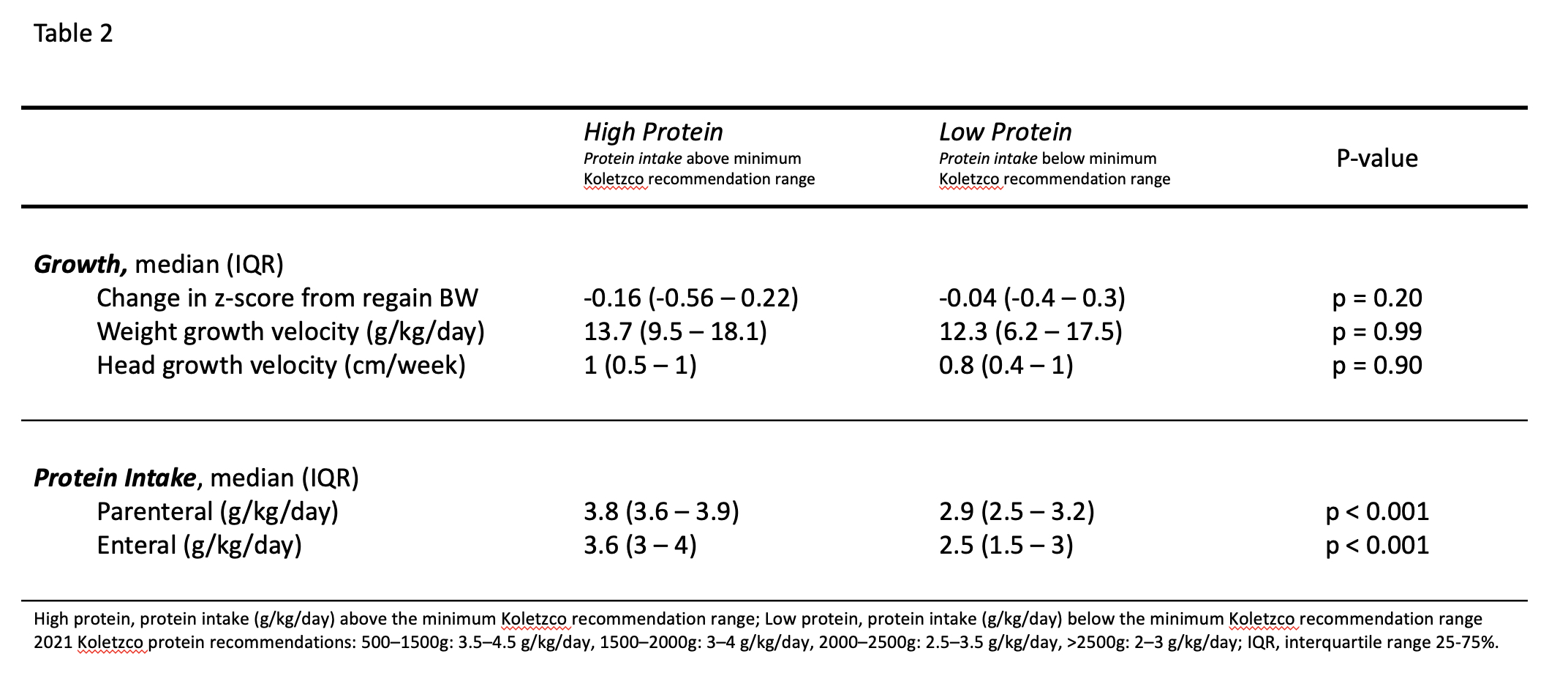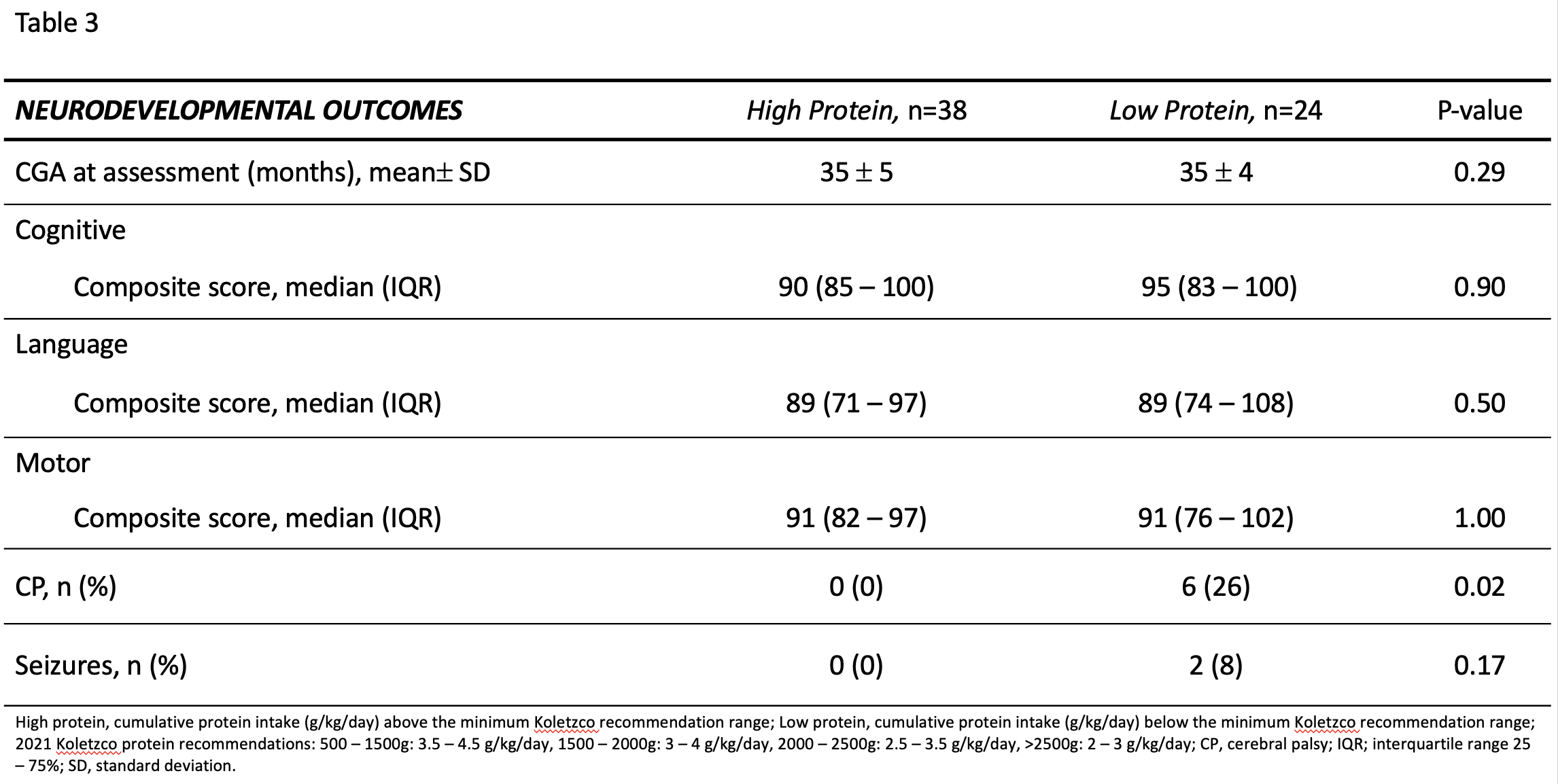Neonatology
Session: Neonatal Fetal Nutrition & Metabolism 1: Growth of Body and Brain
119 - How Low Can We Go? Growth and Neurodevelopmental Assessment of Extremely Low Birth Weight Infants Based on Protein Intake
Friday, May 3, 2024
5:15 PM - 7:15 PM ET
Poster Number: 119
Publication Number: 119.508
Publication Number: 119.508

Brianna L. Cocuzzo, MD (she/her/hers)
Pediatric Resident
Maria Fareri Children's Hospital at Westchester Medical Center
Dobbs Ferry, New York, United States
Presenting Author(s)
Background: Protein is one of the main macronutrients contributing to growth and nourishment of infants. Supplying appropriate protein in extremely low birth weight (ELBW) ( < 1000 g) infants remains a significant clinical challenge, largely in part because individual optimal protein intake is not clearly defined. Current guidelines are based on the fetal protein requirement and anticipated extrauterine losses without taking into account metabolic and physiologic differences between the intrauterine fetus and the extrauterine infant.
Objective: We seek to determine if lower protein intake adversely affects growth and 3-year neurodevelopmental (ND) outcomes.
Design/Methods: This is a retrospective study of ELBW infants admitted from January 2017 until June 2020 with survival until discharge and neurodevelopmental follow-up. Protein intake during entire NICU hospitalization and somatic growth parameters were collected and analyzed. A Neonatal Intensive Care Unit (NICU)-wide nutritional protocol was followed. ND outcomes between high and low protein intake infants were compared using the Bayley Scales of Infant Development 3rd Ed (BSID-III). The high protein (HP) group were those cumulatively meeting the minimum Koletzco protein recommendation range. The low protein (LP) group were those cumulatively below the minimum Koletzco protein recommendation range.
Results: There were 62 infants assessed and divided into HP and LP cohorts. Baseline characteristics, maternal demographics, and Neonatal Intensive Care Units (NICU) morbidities were similar (Table 1). The median protein intake in the low protein group was 2.9 g/kg/day compared to the high protein intake group which was 3.8 (p < 0.001). Due to the retrospective nature of this study, we were unable to determine the underlying reasons for lower protein intake. Protein intake was not statistically significant between EUGR and non-EUGR infants (p=0.20). There was no statistically significant difference in change in weight z-score from regaining birthweight, weight, or head growth velocity between the HP and LP cohorts (Table 2). Cognition, language, and motor composite scores were not significantly different (Table 3). There was more cerebral palsy (CP) in the low protein group however they were also observed to have more severe intraventricular hemorrhage (IVH) and periventricular leukomalacia (PVL).
Conclusion(s): Our study shows that in ELBW infants, a minimum protein intake of 2.9 g/kg/day parenterally and 2.5 g/kg/day enterally leads to target goal growth without adversely affecting ND outcome.
.jpg)


